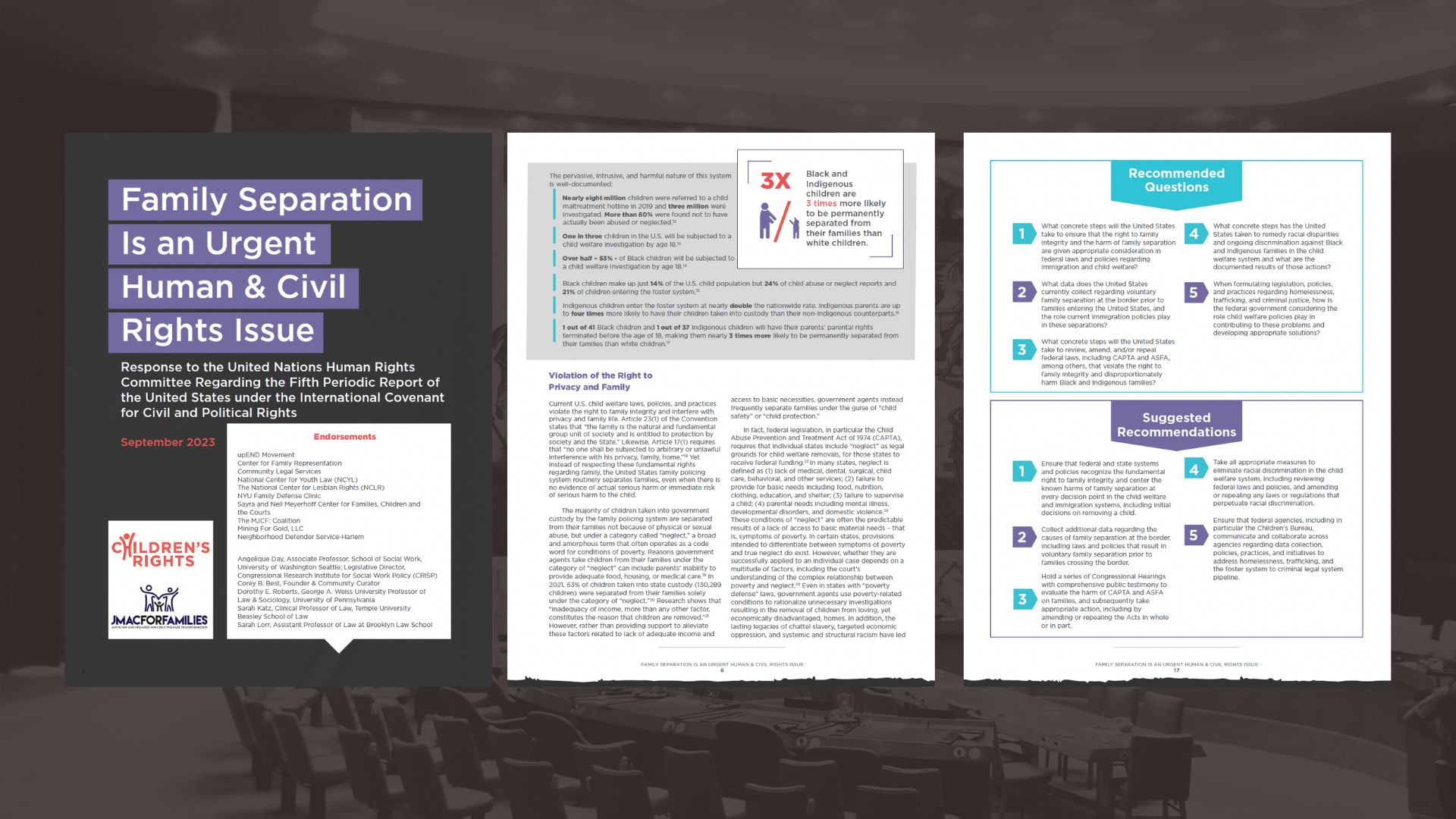upEND Endorses Report to United Nations Human Rights Committee
September 13, 2023
September 13, 2023

upEND endorses a report submitted to the Human Rights Committee for its upcoming review of the U.S. under the International Covenant on Civil and Political Rights, urging them to hold the U.S. accountable for children’s and families’ right to family integrity. The report is authored by Children’s Rights, JMACforFamilies, and Angela Olivia Burton.
Every day in the United States, thousands of children are separated from their families and taken into government custody. This includes migrant children separated from their parents at the border, but also Black, Indigenous, and other children forcibly removed from their parents by the U.S. child welfare system. In fact, both groups of children often end up in the same government system, a system that places children at tremendous risk of harm.
Although the child welfare system purports to provide for child safety and well-being, in practice, the system separates families for poverty-related concerns and disproportionately regulates and separates Black and Indigenous families. The system’s surveillance and separation of families occurs without adequate due process protections and within a set of racially discriminatory laws and policies. For these reasons, the child welfare system is more aptly referred to as the “family policing system.”
The separation of families violates children’s and families’ rights under Articles 17, 23, and 24 of the International Covenant on Civil and Political Rights (ICCPR). Moreover, children placed in the foster system face tremendous risk of harm, including a high risk of becoming homeless, sex trafficked, or involved with the criminal legal system while in government custody. Thus, the government’s forcible placement of children in the foster system also implicates their wider rights, including the right to life (Art. 6).
The human rights violations occurring in the U.S. family policing system, including racial discrimination against Black and Indigenous children and families, have been increasingly recognized by other international bodies. In 2022, for example, the United Nations Committee on the Elimination of Racial Discrimination (CERD) expressed concern regarding “the disproportionate number of children of racial and ethnic minorities removed from their families and placed in foster care.” This report aims to highlight for the Human Rights Committee key areas in which the U.S. government has failed to uphold its human rights commitments under the ICCPR regarding its separation of children from their parents and families, and the resulting harms inflicted on them by the immigration and family policing systems. We look forward to engaging with the Committee and the U.S. government and hope that the concerns and recommendations raised in this submission will be meaningfully addressed by the U.S. government during its appearance before the Committee.